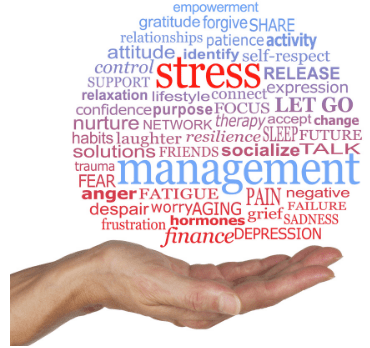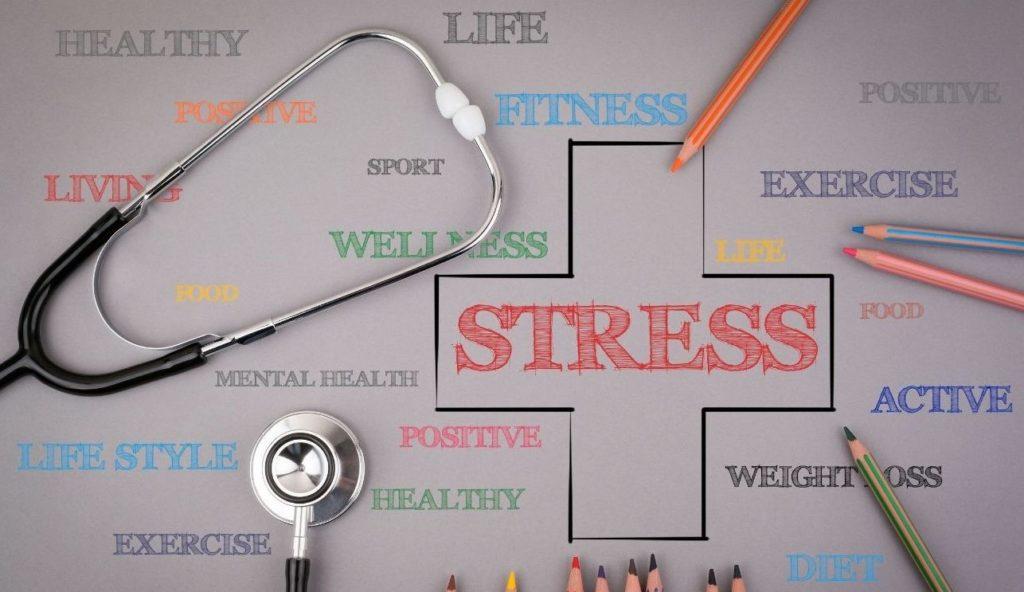Since 1992, April has marked Stress Awareness Month, an annual opportunity to raise awareness of the causes of stress and the ways we can manage our stress levels.
Stress is an evolutionary fact of life for us humans (you can thank our fight or flight response for that). Experiencing stress from time to time is completely normal, but an excess of stress can have negative impacts on our mental, emotional, and physical health.
It’s important to understand the causes of stress so that we can identify the stress-inducing factors in our life and make positive changes to reduce our stress levels.
In this blog post, we will explore common causes of stress, the effects that stress can have on our body, and strategies to reduce stress.
What Causes Stress?
Everyone deals with their own unique stressors, though research shows that work stress is the most prevalent source of stress among adults.
Some common sources of work stress are:
- Excessive workload
- Long hours
- Poor management/lack of strong leadership
- Unclear expectations
- Taking on too much responsibility
- Dangerous work conditions
- Facing harassment or discrimination in the workplace
- Poor financial compensation for the work being done
We’ve all preached that work-life balance is important, but do you really practice it? A 40-hour work week occupies 24% of a person’s week. And that’s just if you’re able to work 40 hours on the dot – many professionals do not have that luxury and must work many more. If your job or workplace routinely presents stressors, that is a substantial chunk of your life spent in a stressful environment. We’ll explore the impact such an environment can have on your health later on in this blog post.

Just like work, life can be hard.
Whereas the workplace can contain a high concentration of specific stressors, life stresses include a wide spectrum of life challenges. Some examples of life stresses are:
- Loss of employment
- Death of a loved one
- Financial setbacks
- Moving to a new place
- Depression/anxiety
- Caring for a sick/elderly loved one
- Chronic illness or serious injury
- Traumatic events
- Fear/uncertainty
- General change
Life stress will impact everyone differently, and not everyone will experience the same life stresses. However, stress is not something we can eliminate from the human experience. As a result, it’s important to be able to identify triggers for stress in your life – that’s the first step to reducing the stress caused by them.
What Effects Does Stress Have On Your Health?
Stress elicits a physical response in your body. When humans are in a stressful situation, the nervous system releases a combination of hormones and chemicals (adrenaline, cortisol, norepinephrine) that trigger the flight or fight response.
During that response we typically experience perspiration, tensed muscles, heavier breathing, and an elevated heartbeat. After the stressful situation is over, these symptoms of short-stress usually subside quickly and without issue.
However, when stress persists over a long period of time, it can have a lasting, harmful effect on your body.
Chronic stress can cause the following physical symptoms:
- Fatigue
- Headache
- Intestinal issues
- Difficulty sleeping
- Muscle tension or pain (particularly chest pain)
- Change in libido
- Heartburn and ulcers
- Flare-ups of chronic illness
- Skin care issues (acne, eczema)
- Unhealthy weight gain or weight loss
- Heart attack or heart disease
- Fertility issues
- High blood pressure
- Suppressed immune system response
If you are experiencing some of these symptoms with regularity, you may want to reexamine your stress level or the potential stressors in your life. If you allow chronic stress and its symptoms to creep up on you, it becomes that much harder to make positive changes.
In addition to those physical symptoms, chronic stress can have a very real impact on your mental and emotional health.
Watch out for these behavioral symptoms that result from prolonged and unchecked stress:
- Depression or sadness
- Anxiety
- Feeling overwhelmed or frustrated
- Irritability/heightened anger
- Disorder eating (overeating or undereating)
- Drug or alcohol use
- Social withdrawal or isolation
- Difficulty concentrating
- Feelings of self-doubt/indecisiveness
- Lack of motivation
- Engaging in hobbies less often
- Brain fog
- Panic attacks
How To Reduce Stress In Your Life
Stress is virtually unavoidable, so how can we best manage it?
There are many effective stress management strategies. You’ve just got to find the ones that work for you. Here are some tried and true methods:
- Exercise regularly
- Engage in relaxation and mindfulness techniques, such as meditation, yoga, and tai chi
- Eat a health diet (and stay consistent!)
- Spend time with friends and family who you feel comfortable discussing your stress and life challenges with (talking it out helps!)
- Dedicate time for engaging in hobbies that bring you joy and peace, such as reading or listening to music
- Avoid excessive use of substances like tobacco, caffeine, and alcohol
- Stick to a consistent and adequate sleep schedule

Navigating COVID-19 Stress
Living through COVID-19 has been hard. Last year, we examined how the pandemic has been a unique and enormous stressor in all of our lives.
Most of the pandemic-induced stress we were seeing at that time had to do with the uncertainty and unknowns of life with COVID-19, as well as the fear of infection. Those stressors are still potent and very much alive today, but there is now an emerging source of pandemic stress as we get closer to returning to “normal” life.
COVID-19 has conditioned us to stay six feet apart and avoid social interaction for over a year. Now, as vaccination rates continue to rise, we are faced with the prospect of actually being able to return to crowded social gatherings, the office, or campus.
As eager as we were for lockdown to end in the early days of the pandemic, a year of isolation has changed that impulse for some.
According to APA’s Stress in America poll, 49% of Americans feel uneasy about adjusting to in-person interaction when the pandemic ends.
So, if you are experiencing anxiety about the world opening back up, you are not alone. Experts say this is a normal response to the habits and routines we were all forced to forge during isolation.
The important thing is that we don’t let that uneasiness consume us. It’s okay to feel nervous about being together in the world again, but it’s unhealthy to allow that fear to control our actions.
As with any anxiety-inducing situation, complete avoidance is not the answer.
USA Today provides a useful barometer in this case: “If fear is inhibiting you from engaging in activities the Center for Disease Control and Prevention deem safe, that could be a sign you need to change your approach.”
If you’re nervous about adjusting to an in-person environment, be patient and compassionate with yourself, but also be firm in your efforts to re-integrate into society.
Consider taking small steps towards socialization. You don’t need to run to a lively restaurant tomorrow. Start with smaller gatherings with people you feel comfortable with and work your way up to a night out on the town.
Want to stay informed on how COVID-19 is impacting us and our industry?
Subscribe to More Content Like This!

